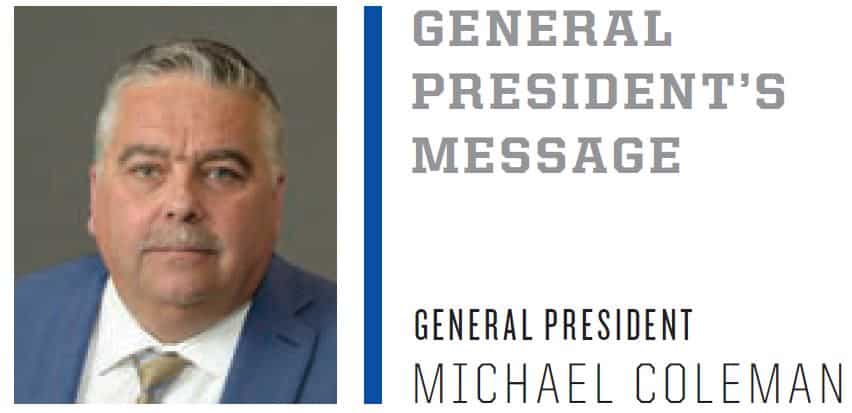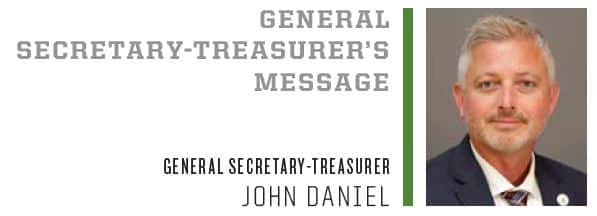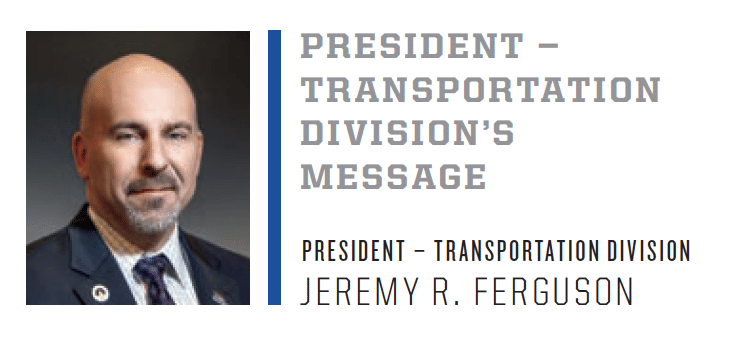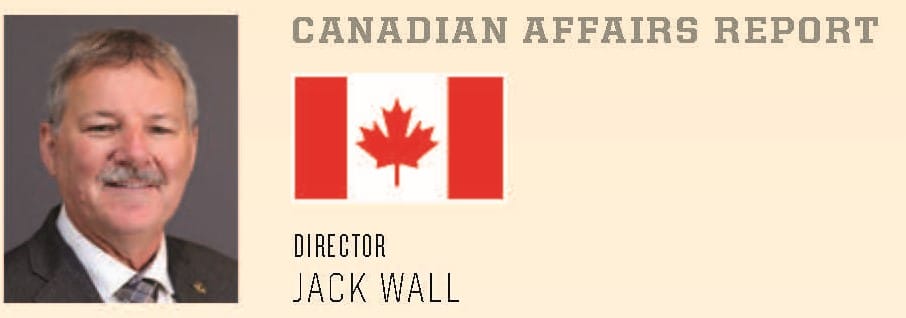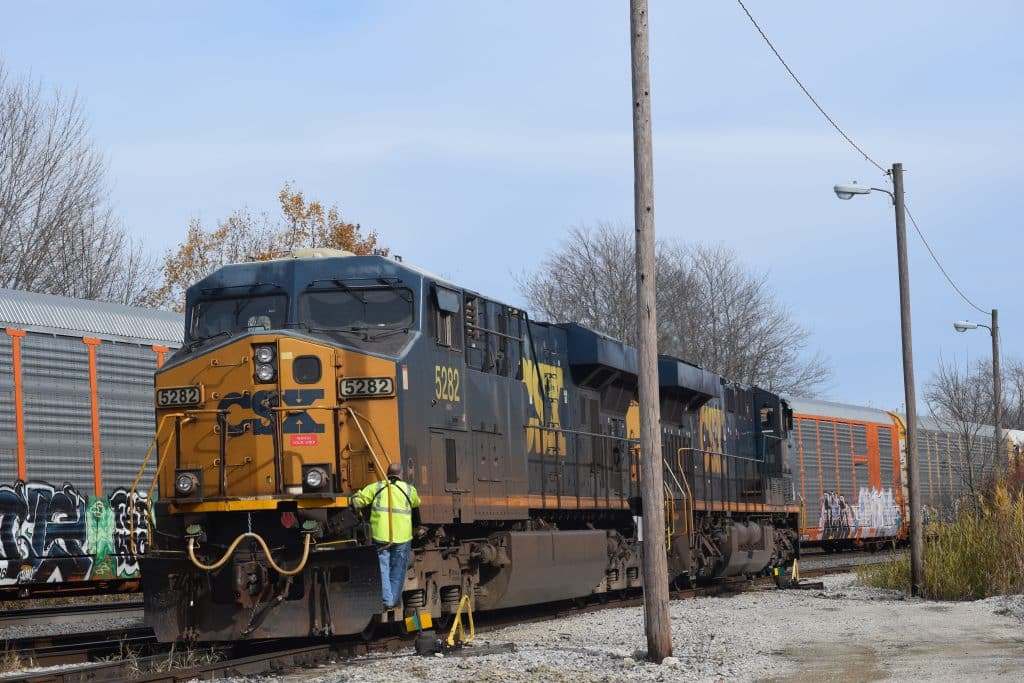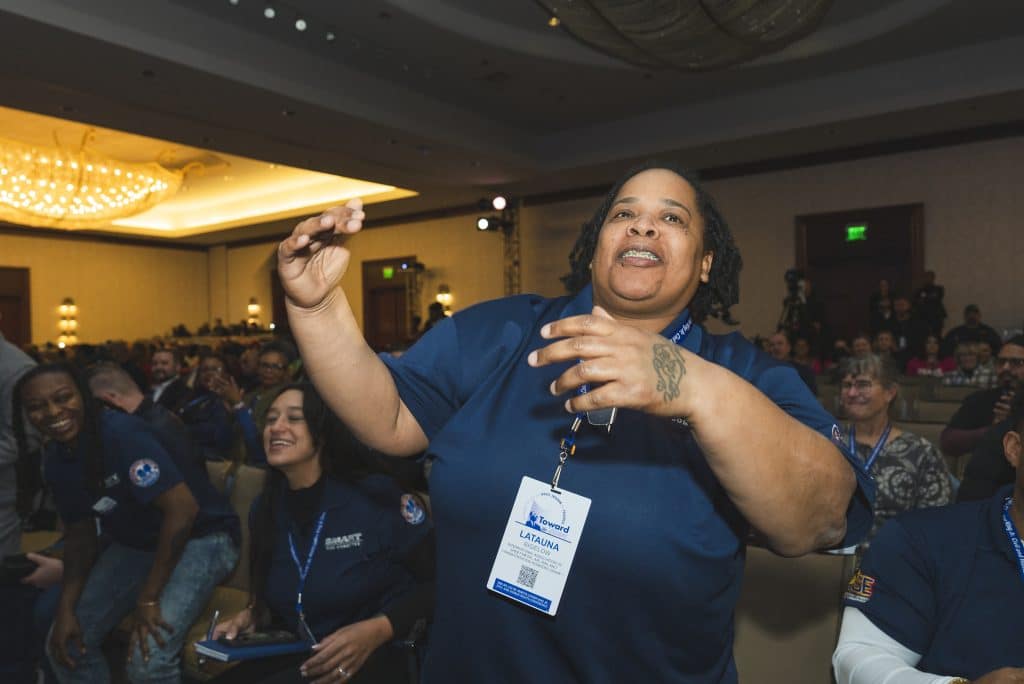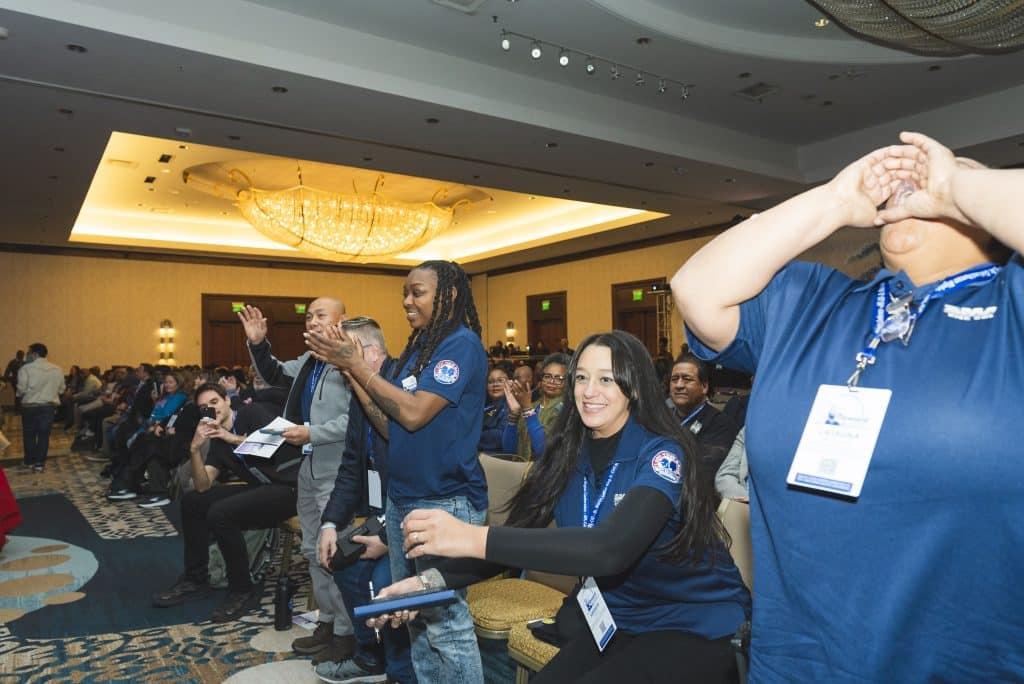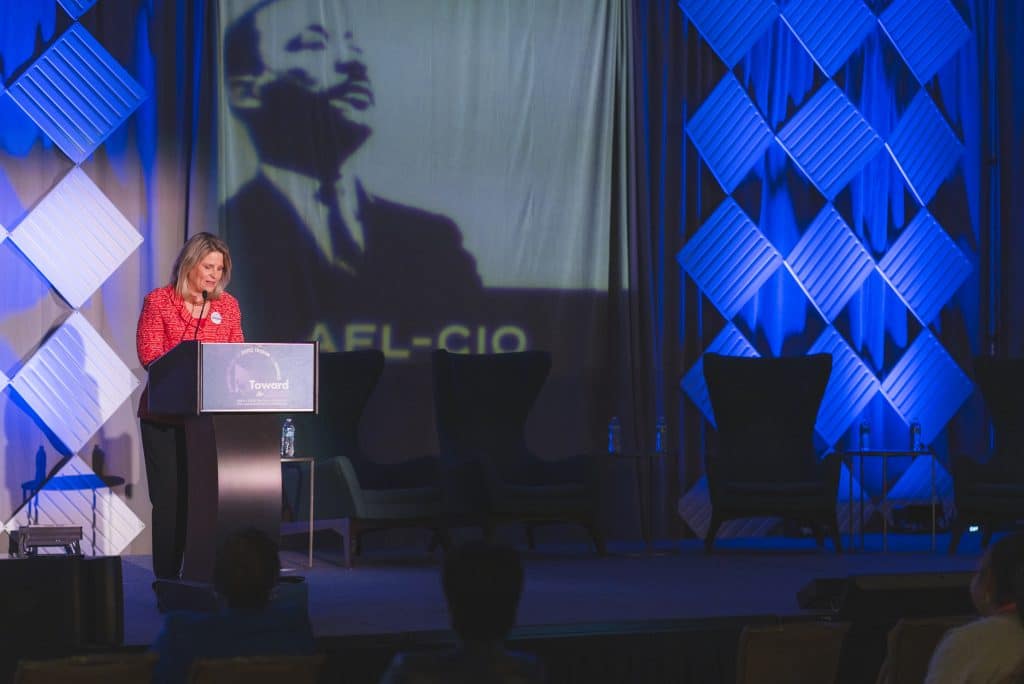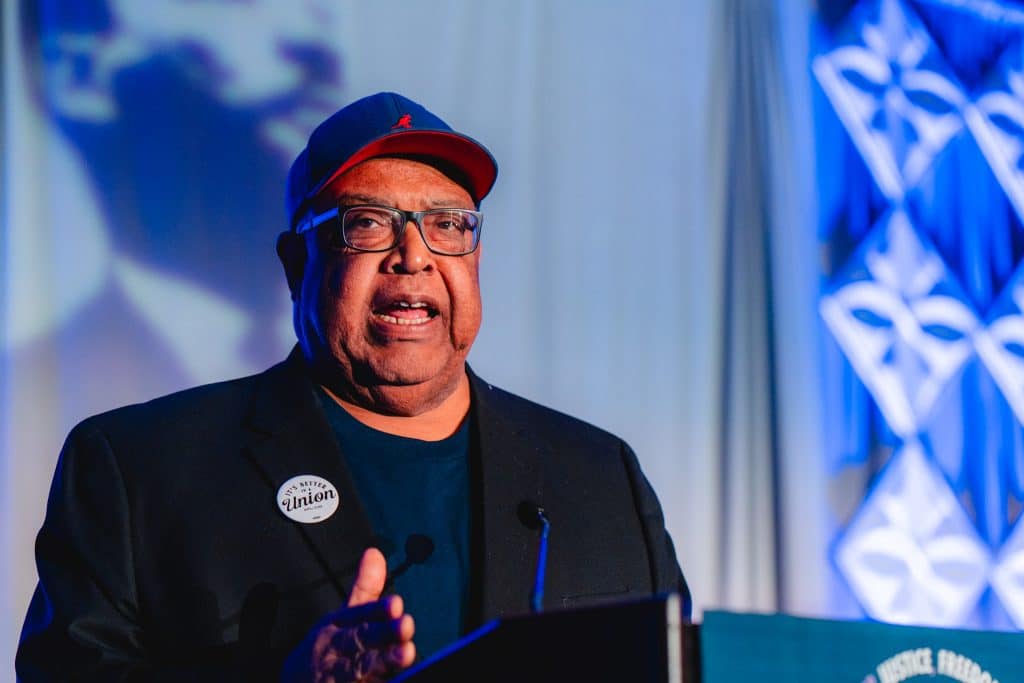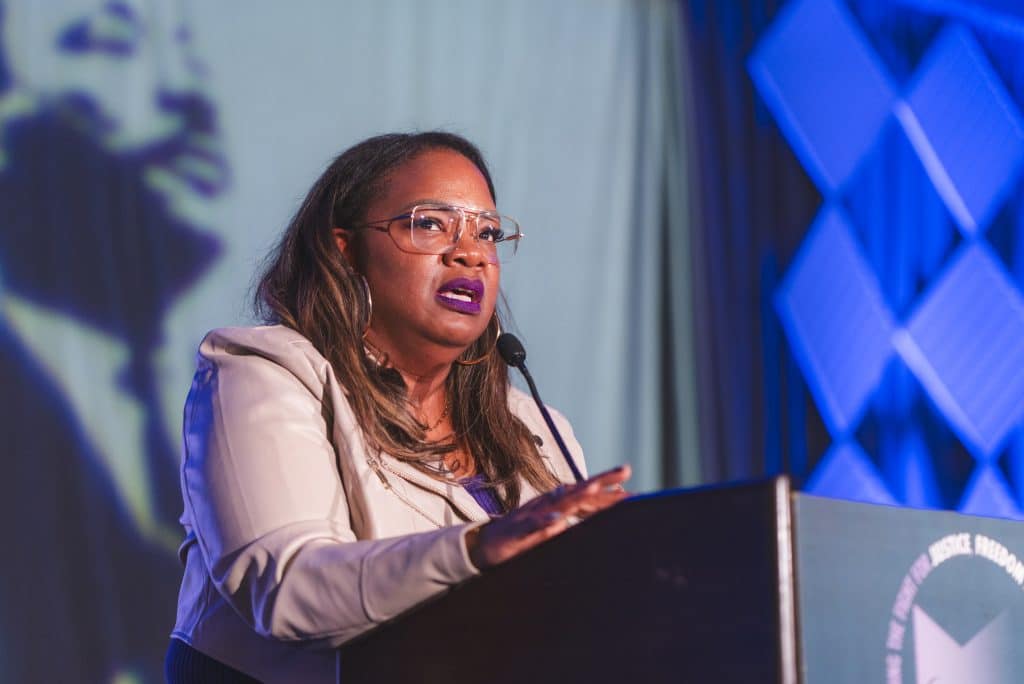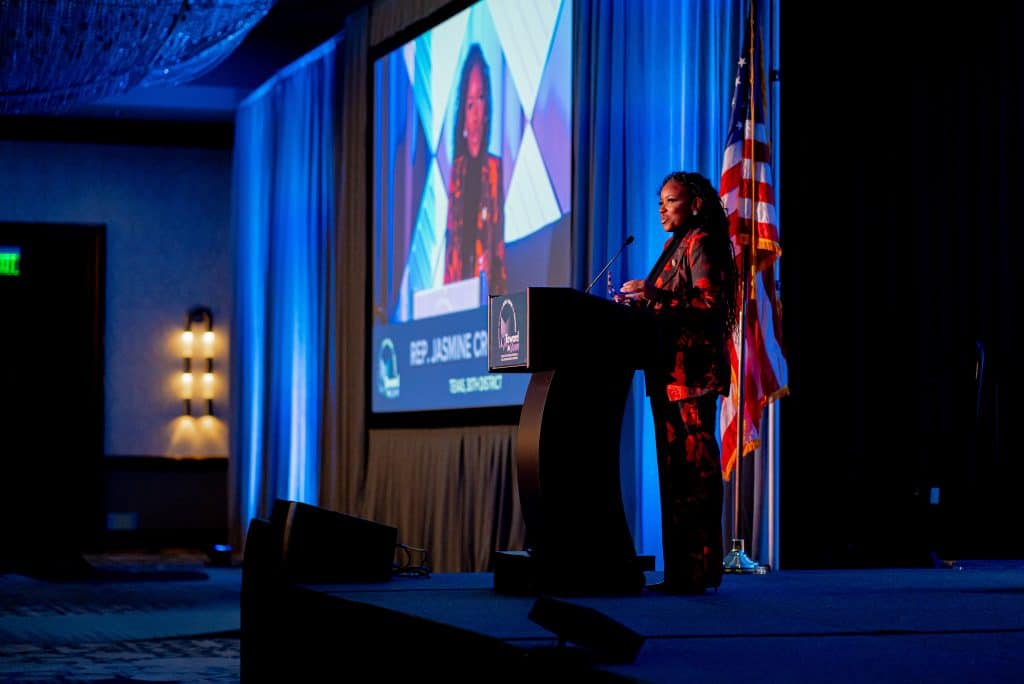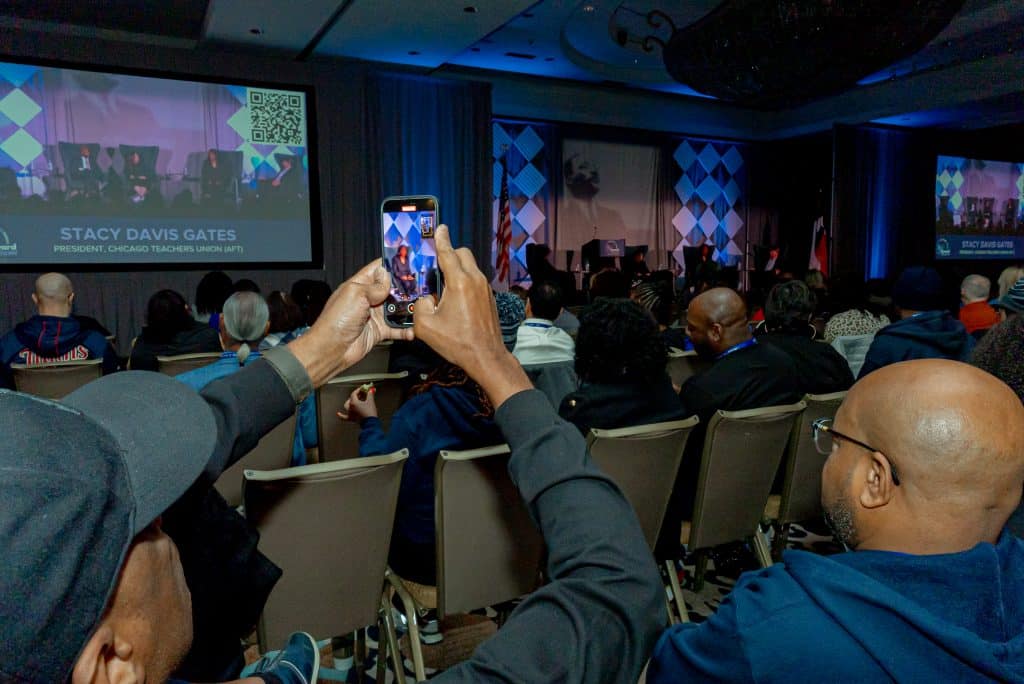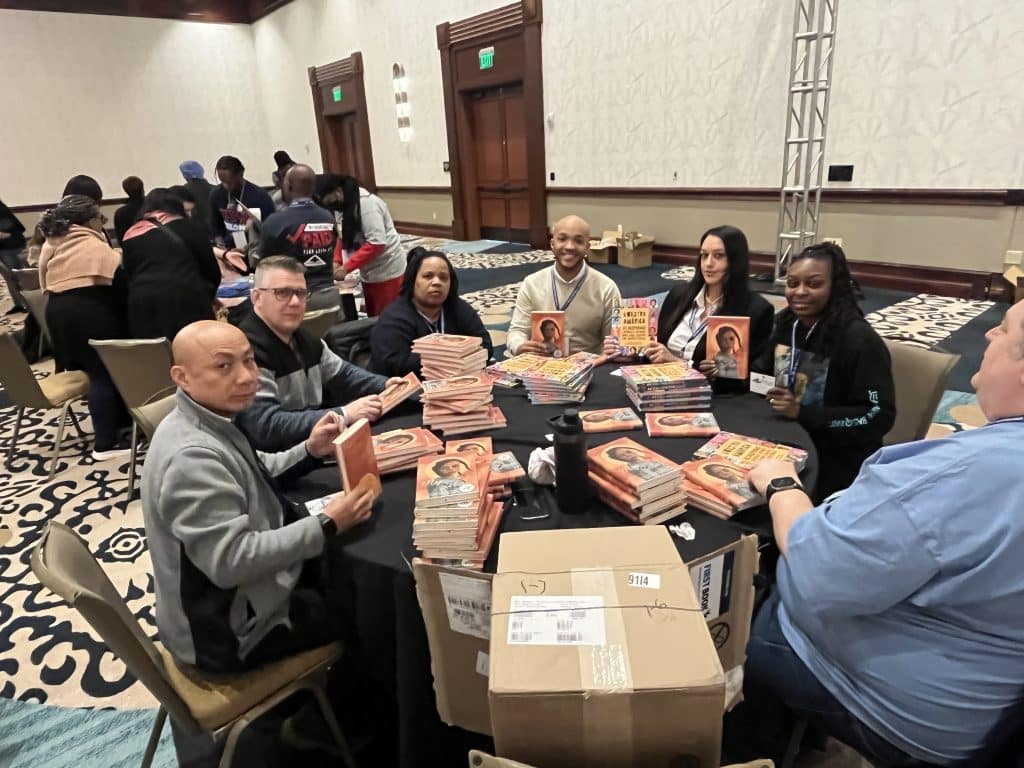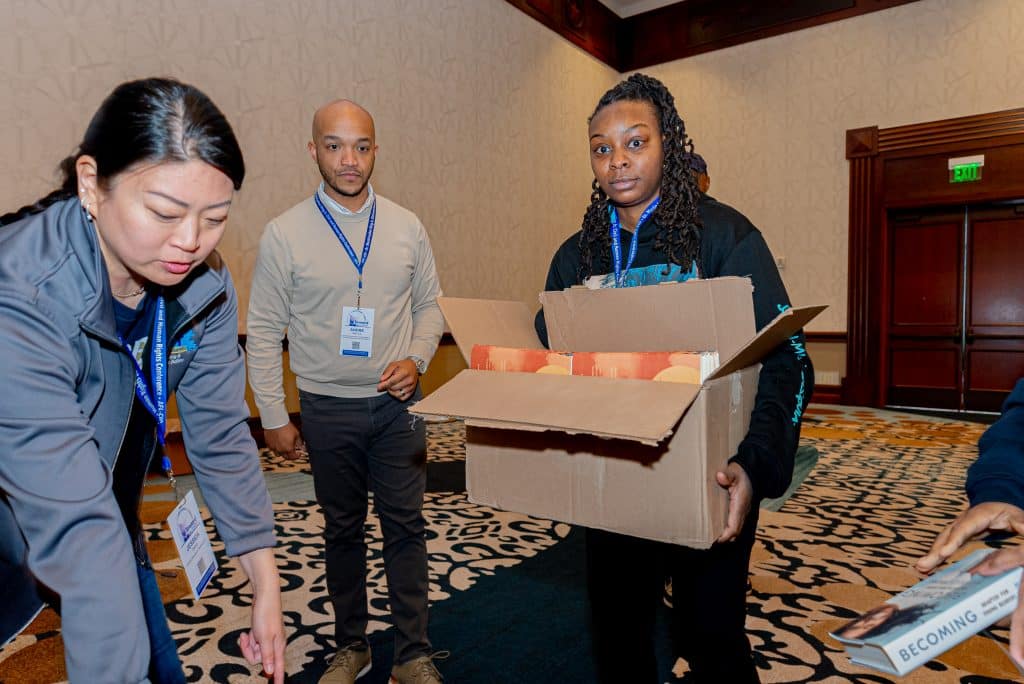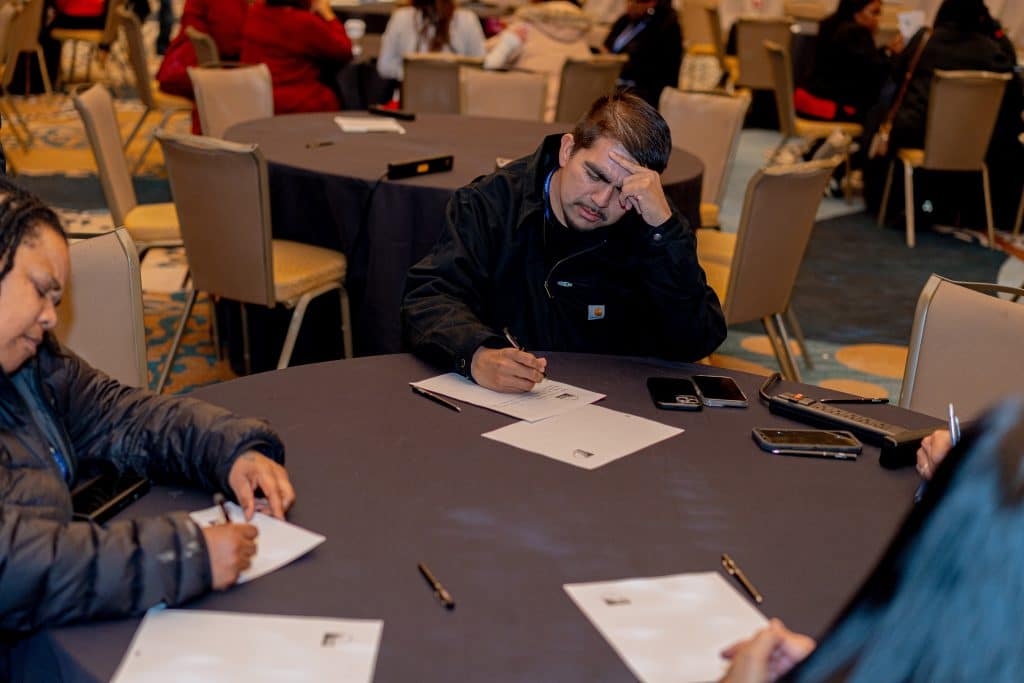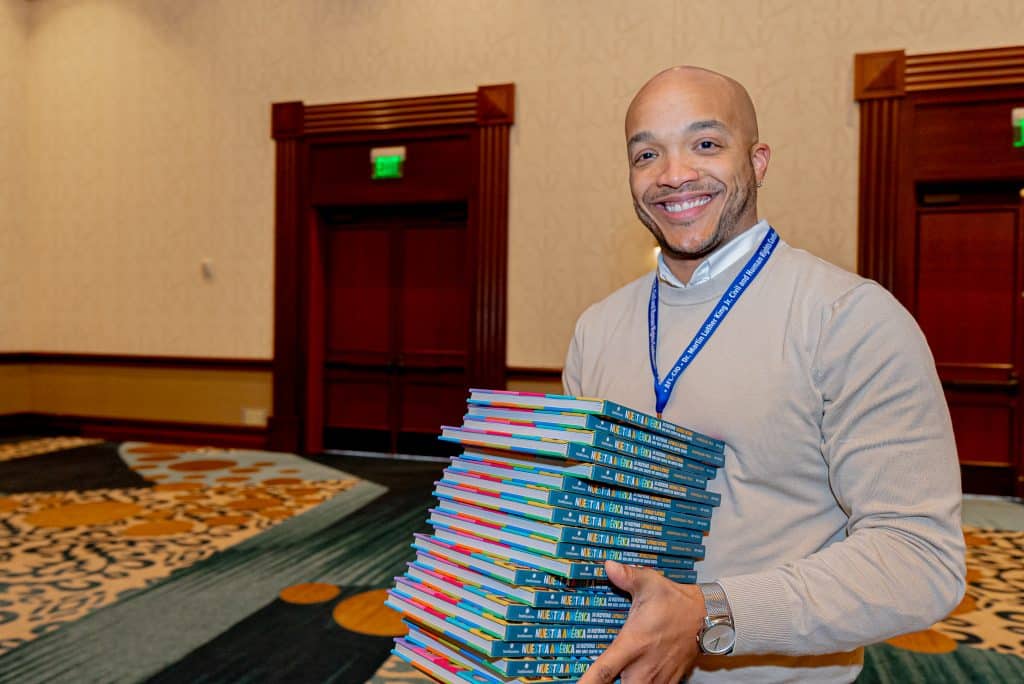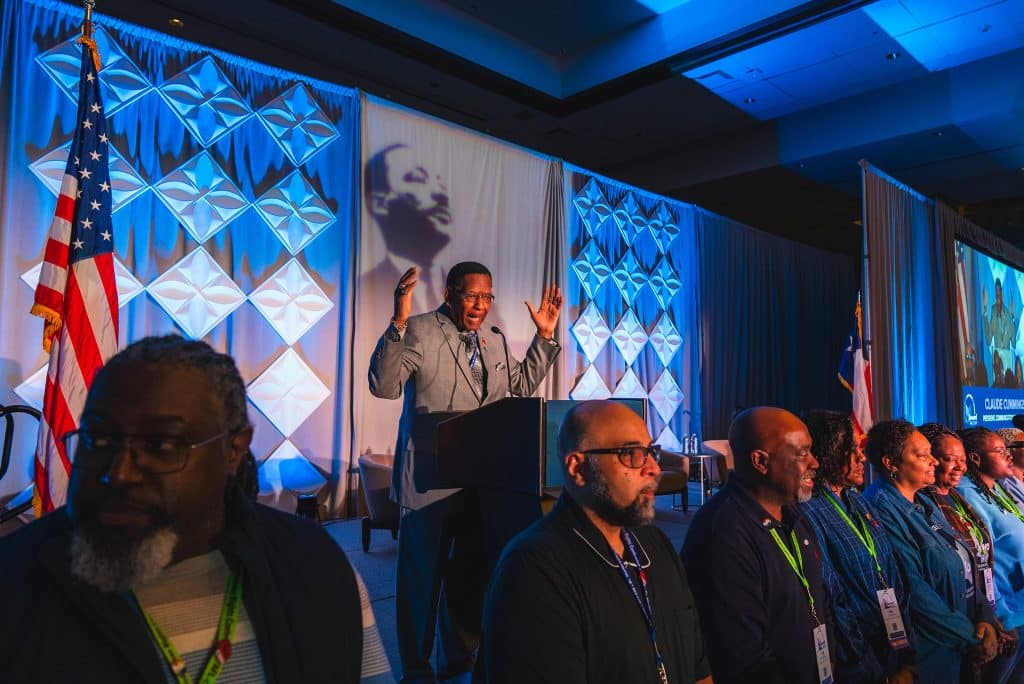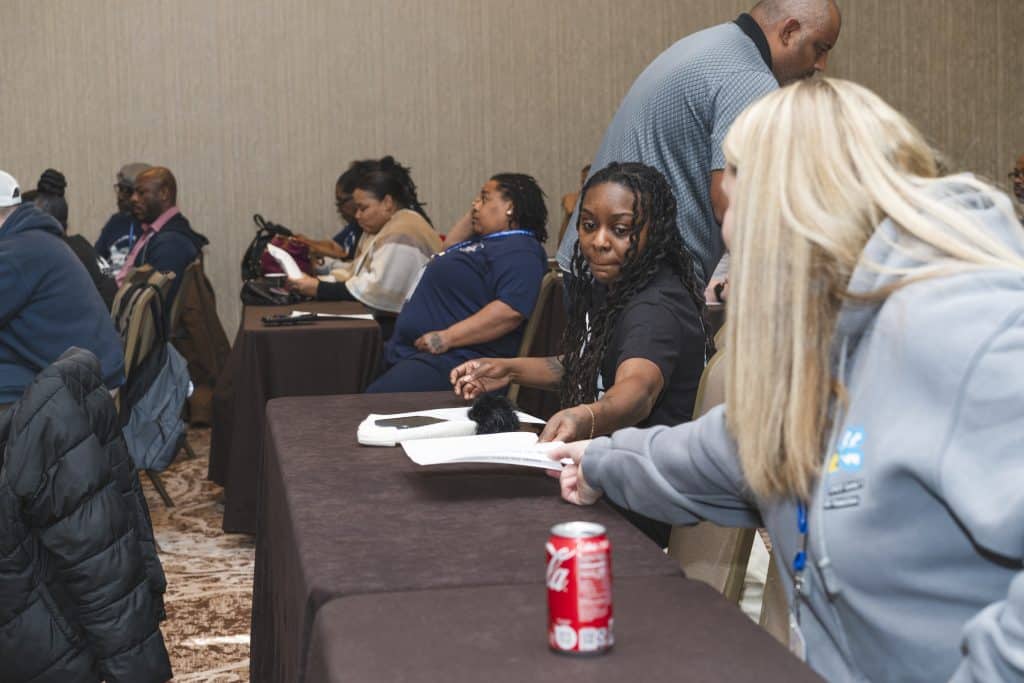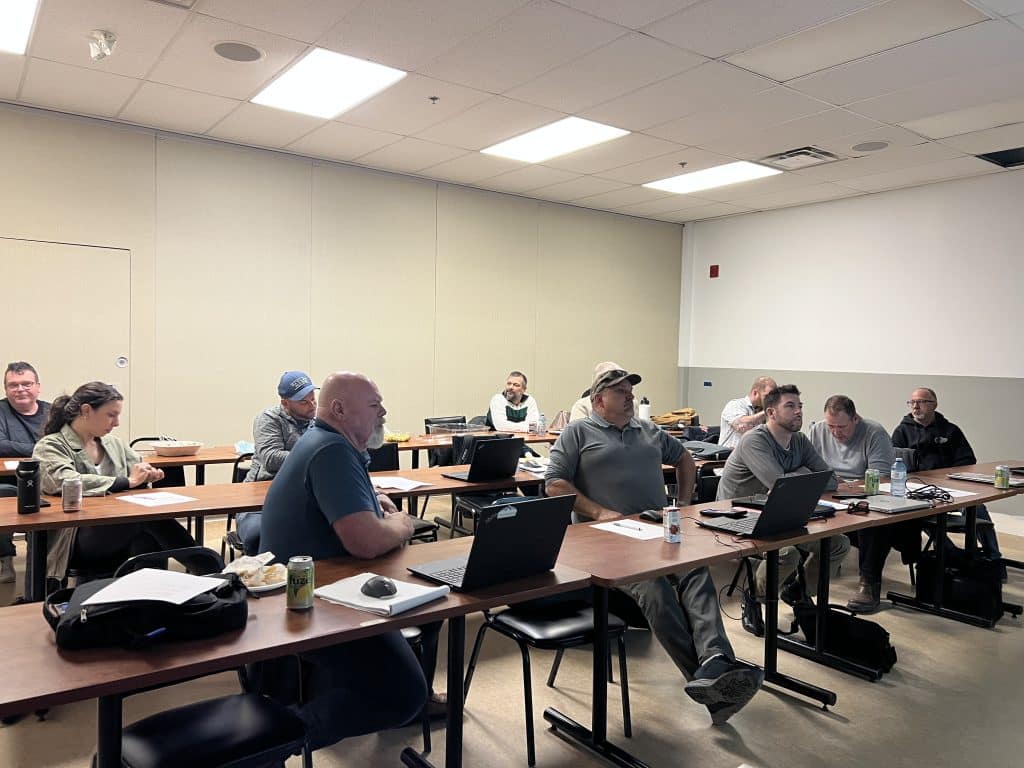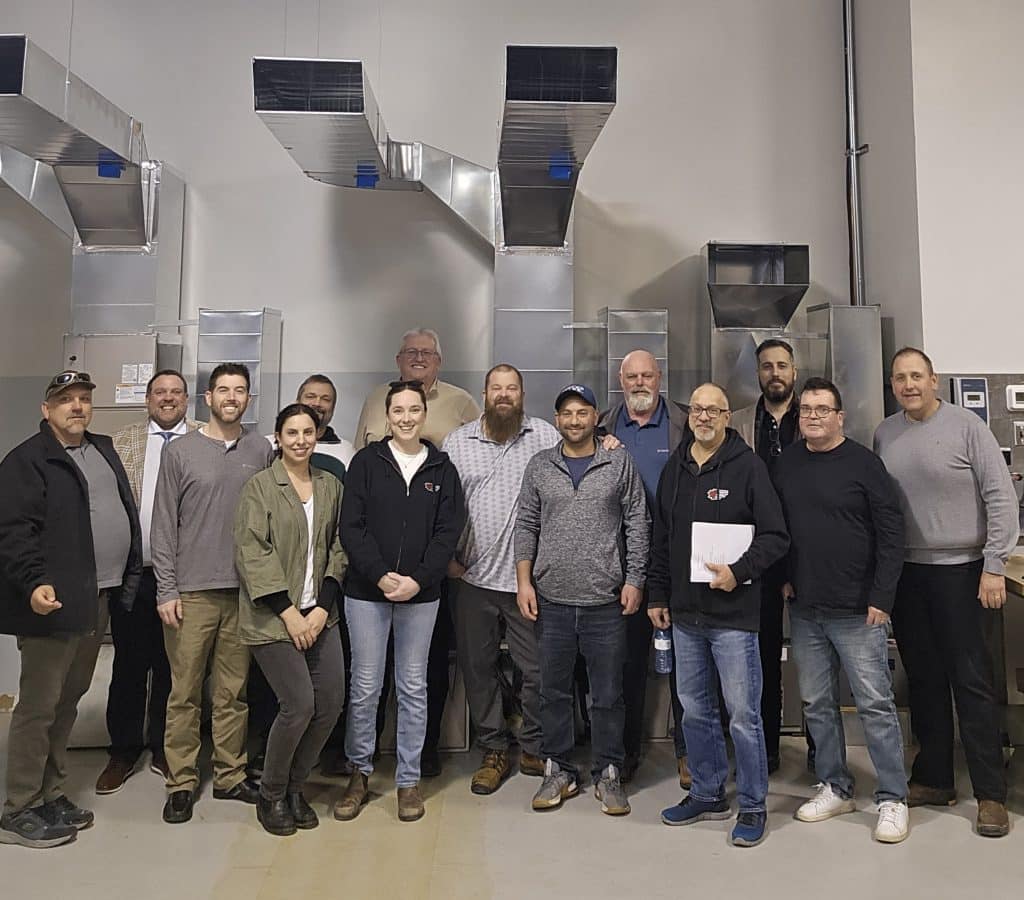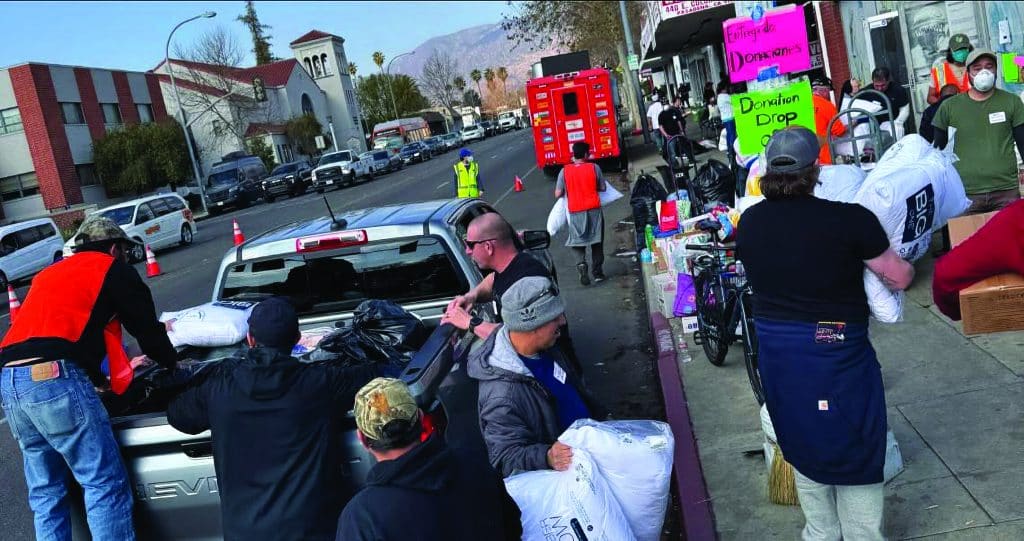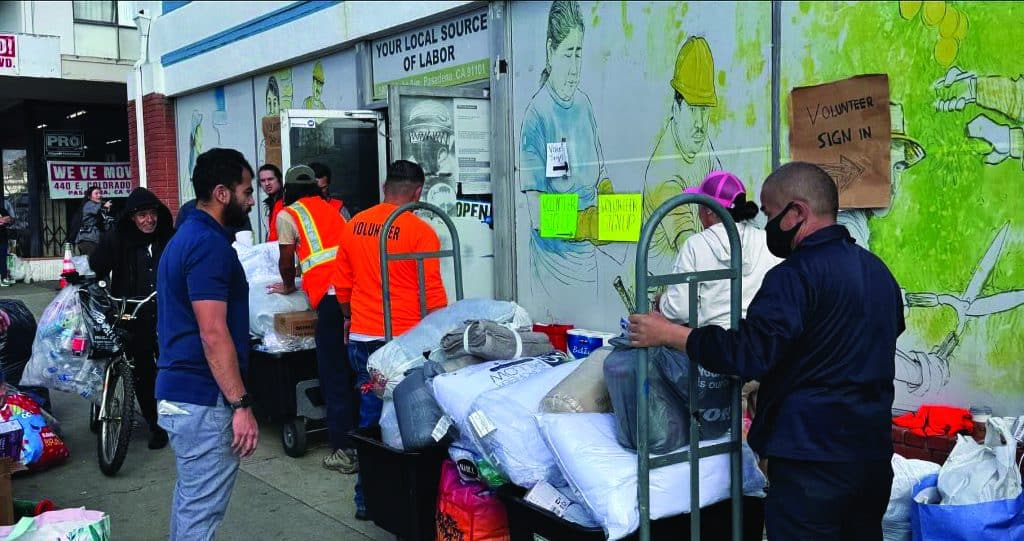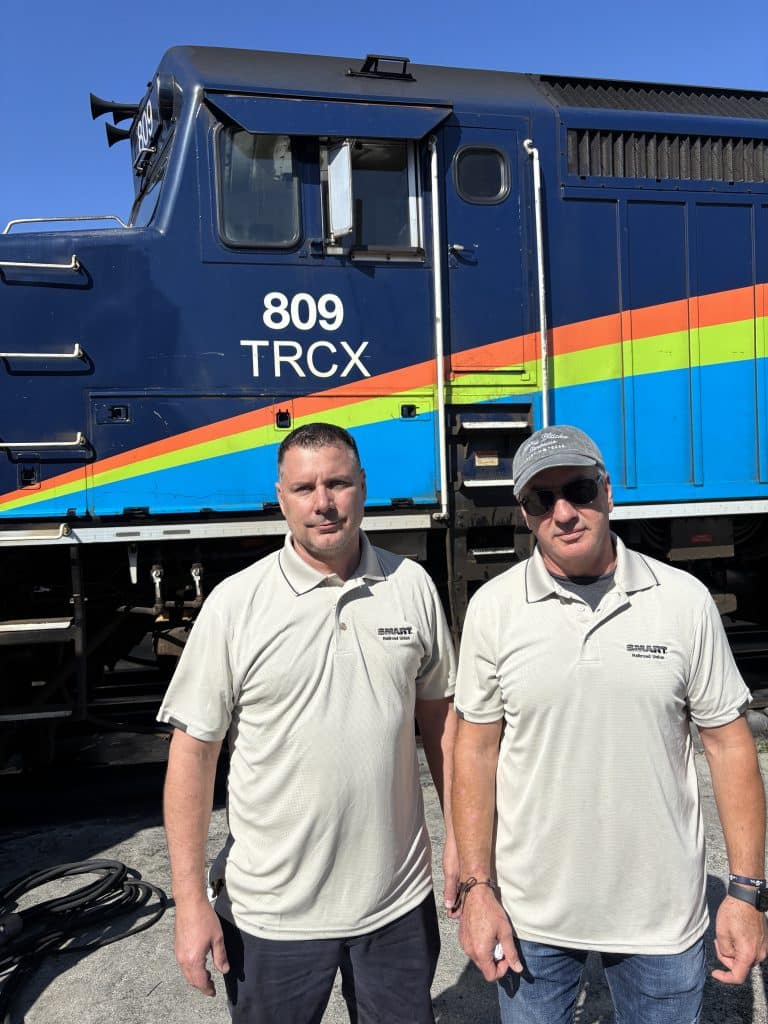SMART, TOOTRiS partner to deliver childcare benefits to U.S. SM members
On January 16, 2025, SMART announced a transformative partnership with TOOTRiS, the nation’s leading provider of on-demand childcare services, to offer childcare benefits to members across the United States. This collaboration established SMART as the first building trades union in the country to adopt wrap-around childcare benefits for its members, with the benefit activating February 1, 2025, for participating sheet metal local unions.
“This partnership sets a new standard for addressing the real-life challenges faced by working families,” said SMART General President Michael Coleman. “We are proud to be the first building trades union in the country to provide access to childcare programs nationwide, ensuring that our members — especially apprentices and young families — have the support they need to thrive in their careers and at home.”

Members at participating sheet metal locals can find customizable care
Ordinarily, access to TOOTRiS’s program costs $24.99 per month. For SMART sheet metal members at participating local unions in the United States, the program cost is covered by funding from the SMART International, giving them real-time access to licensed childcare providers in urban and rural areas; search features tailored for special needs care and flexible scheduling; and multilingual support through TOOTRiS’s app and website. In addition to the platform, TOOTRiS’s concierge service offers members personalized assistance in helping to locate providers that meet their needs and work schedules, including very early hours, swing shifts and more. Providers are licensed and regularly reevaluated utilizing state licensing data to ensure they meet stringent quality standards, giving members peace of mind when searching for care.
In two locations, SMART has piloted a subsidy program for participating members. Participating Local 20 sheet metal workers at a hospital megaproject in Indiana are eligible to receive a monthly childcare subsidy, helping members with children take on the work as the local staffs the multi-billion-dollar job. And participating Local 3 production members at Lozier in Omaha also can receive a subsidy, helping provide much-needed childcare for existing members and serving as an incentive for unorganized members at the shop to join SMART.
SMART Local 206 in San Diego, California, began offering the program as a benefit to members nearly three years ago — “the whole reason being a lot of our members [were] calling in, saying they couldn’t get to work, apprentices especially, because they had childcare issues,” said Business Manager Dave Gauthier.
He added: “I was really impressed with the technology, the fact that it was a search engine that you could pretty much edit in any way you wanted,” filtering anything from scheduling needs to allergy information and proximity to work or home.
Eligibility requirements:
- Available to members in good standing with children aged 0-12.
- Local union must participate for its members to be eligible.
Please note: The benefit doesn’t cover the cost of childcare but gives members premium access to the most affordable options.
SMART FIRSTS
- 1953: Local 28 (New York City) negotiates first-ever pension plan in a building trades labor contract.
- 1961: SMART (then SMWIA) and SMACNA develop first sheet metal industry training manual.
- 1963: SMART becomes first union to offer members accident insurance.
Childcare: key to building our nation
Infrastructure investments and a resurgence in domestic manufacturing have driven huge workforce demands in the United States in recent years. Along with ensuring indoor air quality in schools, hospitals and other buildings, SMART sheet metal workers have been at the forefront of many large infrastructure projects, including the Los Angeles International Airport (LAX) modernization, the Dallas-Fort Worth terminal expansion, semiconductor fabrication projects by Micron, Intel and others, and many more.
The need for skilled workers continues to rise as projects break ground. However, childcare is frequently cited as one of the most significant barriers to both entering and staying in the building trades, with unpredictable schedules and mobile jobs making ordinary services less accessible. Additionally, childcare costs have surged over 50% in the past decade, and the shortage of providers has securing care even more difficult. Apprentices and younger members, who are often in the early stages of building their careers and salaries, are particularly vulnerable.
SMART Local 16 (Portland, Ore.) Organizer Korri Stubenrauch detailed the impact of the childcare crisis on workers in the construction industry during Tradeswomen Build Nations 2023. Stubenrauch spoke from personal experience: Despite her love for her craft and dedication to her union, she had to briefly step away from her sheet metal career due to the challenges she faced finding adequate, affordable and accessible childcare.
“Together, let’s build a future where no parent in the trades has to choose between professional commitments and parental responsibilities,” Stubenrauch urged TWBN attendees at the time.
Now, through its partnership with TOOTRiS, SMART is poised to do just that. With the newly launched childcare benefit, U.S. members at participating locals gain access to over 200,000 licensed childcare providers nationwide via TOOTRiS’s state-of-the-art platform, including programs offering non-traditional hours, drop-in care and 24/7 availability. TOOTRiS technology — accessible via the TOOTRiS app or online — allows parents to search, compare and enroll in care based on real-time availability tailored to their needs. And perhaps most importantly, the concierge service offers prompt, personalized assistance, whether trying to find summer camp a year in advance or dealing with a childcare need at an unorthodox time.
“A big thing for us is the hours,” Gauthier explained. “I dropped my kids off at their daycare at six in the morning, and if [the daycare was] late to open up the doors, then I was late to work. And so the fact that there’s a lot of facilities out there that have flexible hours … most people aren’t aware of [that] unless they have a search engine like TOOTRiS.”
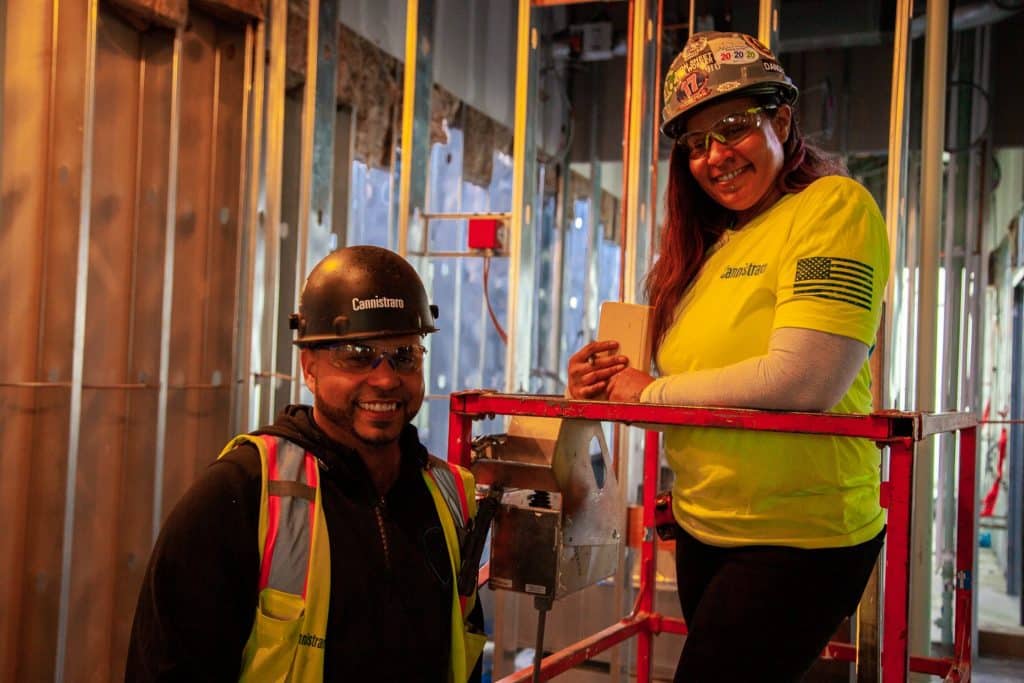
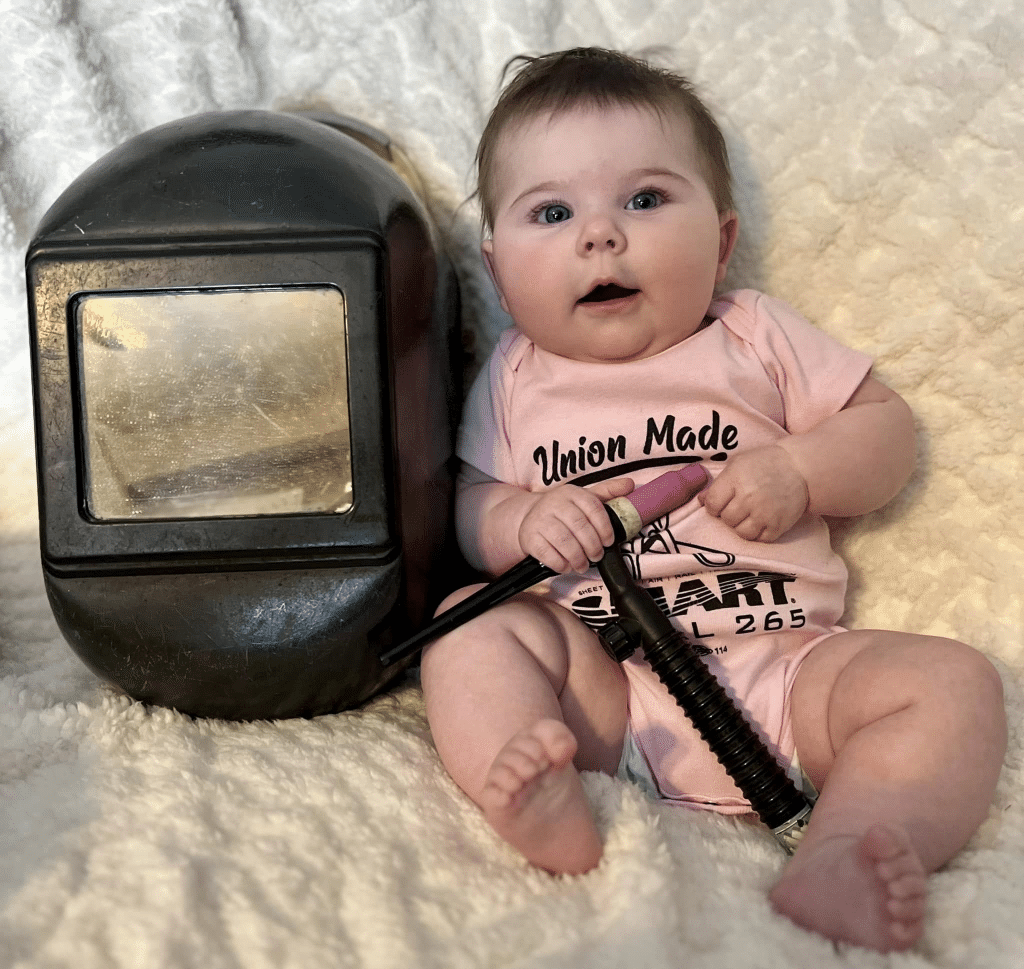
Growing our union
SMART’s new childcare benefit aims squarely to strengthen participation in the sheet metal trade, particularly among women and members with young families. This is crucial for the present and future of our union: We need to grow to take on the work hours demanded of us, bringing in the labor force of the future to support active and retired members.
“We’re recruiting a lot of women in the trades,” said Gauthier. “[There’s] a national labor shortage for people in the trades, and 50% of the people out there that are looking for work are women. So in order to bring women in, we have to give them options,” including maternity leave and accessible childcare.
“This partnership addresses a critical gap for families in the trades, enabling parents — especially women — to succeed in careers that were once out of reach due to a lack of childcare,” added Allison Grealis, Women in Manufacturing Association president and founder. “This is a step forward for support and inclusion in the workforce.”
Local 206 has already witnessed the material differences, both for existing members and when conducting outreach.
“The average age of an apprentice is close to 30 years old,” Gauthier said. “If the average age [is] in the thirties, and the average age of people having young children [is] in their late twenties or early thirties, and they’ve got to be at work every day and then school twice a month, those are hours and times that they’re going to need childcare.”
He continued: “So in recruiting, we go to outreach events and … we bring the TOOTRiS flyer and say, ‘Hey, if you have kids, we offer this childcare provider system that will give you an option to get better childcare, more affordable childcare.’”
Members or local union officers with questions about TOOTRiS should reach out to SMART Director of Special Projects Louise Medina. You can also view more details on SMART’s TOOTRiS landing page here.
